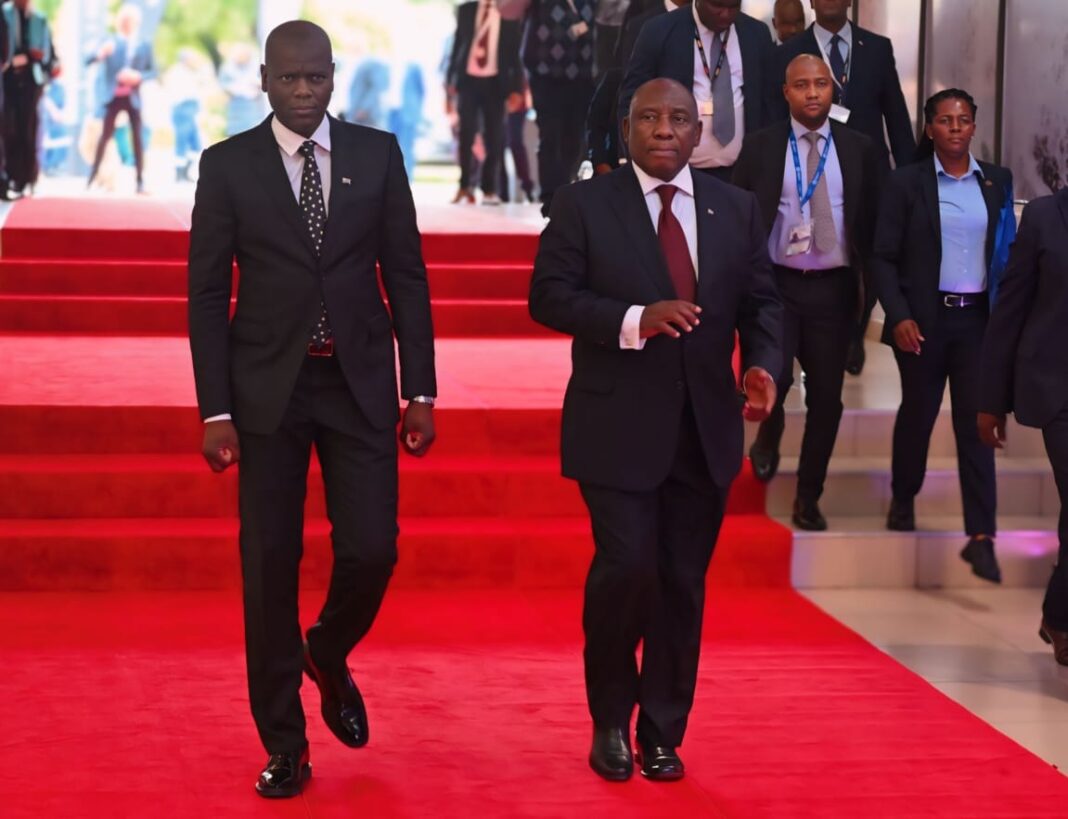By Simon Nare
President Cyril Ramaphosa has appealed to the G20, which comprises some of the world’s largest economies, to help low-income and developing countries sustain their debt as borrowing costs continue to sour.
Addressing the opening of the G20 foreign ministers’ meeting in Johannesburg on Thursday, Ramaphosa said developing countries were currently experiencing the highest borrowing costs in nearly two decades.
As a result, debt payments were crowding out vital domestic expenditure and diverting critical resources away from development.
The president’s appeal comes a day after the National Assembly postponed the tabling of the 2025 Budget because of disagreements in the Government of National Unity over the hike of VAT by two percentage points.
South Africa is heavily in debt and spends a massive R106 billion a day servicing debt and this is expected to rise in the coming years. The country’s debt is expected to increase to R5.5 trillion in the 2024/2025 financial year.
Interest costs are expected to reach R1.3 trillion over the Medium-Term Expenditure Frame which runs to 2026/2027.
Finance Minister Enoch Godongwana has warned that debt costs were not sustainable and, and this may be a reason why he opted to propose a VAT increase that was rejected by Cabinet.
Appealing to ministers attending Thursday’s meeting, Ramaphosa said the G20 family needed to come to the party.
“More than 3.3 billion people live in countries where interest payments on debt exceed education or health spending. The G20 needs to renew its efforts to advance debt sustainability, with a particular emphasis on African countries.
“We should take action to ensure debt sustainability for low-income countries,” he said.
While welcoming the delegates to the first foreign ministers’ meeting under South Africa’s G20 presidency, Ramaphosa said it was significant that the G20 Summit later this year would be convened for the first time on African soil.
“This highlights the growing importance of the continent in global economic, political and environmental discussions.
“Africa is home to some of the world’s fastest growing economies and faces unique challenges, such as the impact of climate change, development needs and the effects of global trade dynamics,” he said.
The president said it was time that African voices were heard on critical global issues like sustainable development, and this presented a great opportunity to promote greater collaboration between African nations and the rest of the world.
He said there was lack of consensus among major powers, including in the G20, on how to respond to global issues such as geopolitical tensions, rising intolerance, conflict and war, climate change, pandemics and energy and food insecurity.
The president said these challenges were interconnected and required responses that were inclusive and coordinated. Extreme poverty and growing inequality within and among nations weighed heavily on the conscience of the world.
“The G20 represents over two-thirds of the world’s population. Its decisions and policies must reflect the needs and aspirations of all who form part of the G20 family. The G20 must also seek to reflect the needs and aspirations of all people who call this planet home,” he said.
Ramaphosa said South Africa would use its G20 presidency to push for the mobilisation of financing for a just energy transition, saying although climate change affected developed and developing economies alike, the impact was uneven.
He said each nation had a responsibility to contribute to the global climate effort in line with the principle of common but differentiated responsibilities and respective capabilities.
He added that countries which contributed the most to climate change had a duty and responsibility to support those who contributed the least.
“G20 leaders should secure agreement on increasing the quality and quantity of climate finance flows to developing economy countries.
“This includes strengthening multilateral development banks, enhancing and streamlining support for country platforms such as the Just Energy Transition Partnership and leveraging private capital more effectively,” he said.
Ramaphosa said the other area South Africa would focus was harnessing critical minerals for inclusive growth and sustainable development.
“As a premier forum for international economic cooperation, the G20 needs to play a leading role in the global agenda for people, the planet and prosperity. As we strive towards a common purpose, let us remember that cooperation is our greatest strength.
“Let us seek to find common ground through constructive engagement,” he said.
The meeting, which kicked off on Thursday afternoon, ends on Friday.
INSIDE POLITICS

